
After a fairly sparkling record in the 2012 elections (San Diego LGBT Weekly Sept. 27 2012 – Breaking open the political fortune cookie), the Politically Aware crystal ball was looking forward to a well-earned rest. Then City Council President Tony Young announced his resignation, Rep. Juan Vargas was sworn in, and the sound of falling dominoes demanded a peek into 2013 before the oracle gets buried under disassembled holiday decor.
District 4. We know Todd Gloria has taken outgoing Council President Tony Young’s gavel, but we don’t know who will take his seat. I have heard that upward of 10 people may run, and they are in various stages of planned and announced candidacy, and paperwork done or not. Things are picking up now that the election is set for March 26.
It looks to be a diverse slate, including men, women, members of the LGBT communities and communities of color, both, and more. From the LGBT perspective, Dwayne Crenshaw, the executive director of San Diego LGBT Pride, has the most name recognition. Myrtle Cole, whose nascent candidacy already has the backing of the San Diego and Imperial Counties Labor Council and local LGBT political powerhouse Toni Atkins, could compete for LGBT votes. Much may depend on if and how LGBT groups like the Victory Fund and the San Diego Democrats for Equality get involved. For the moment, the crystal ball likes Crenshaw and Cole for the general, but as the slate hardens, the Magic 8 Ball’s answer may be wiser – “Ask again later.”
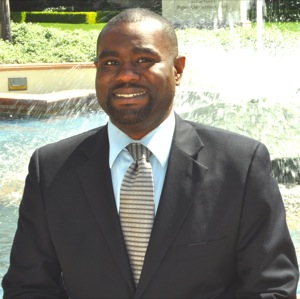
State Senate, District 40. Speaking of former City Council presidents, Assemblymember Ben Hueso has announced his intention to run for the seat vacated by now Rep. Juan Vargas. The election is set for March 12, but it’s hard to imagine a date or candidate who could stop him from becoming state Sen. Hueso. As Vargas’ term only runs until 2014, his victory party will likely be the first fundraiser for his re-election bid.
State Assembly, District 80. Assuming Hueso wins, which I clearly am, there will (eventually) be a special election to fill out his Assembly term. Lorena Gonzales (from our “buy” column) has already declared her intention to run, and while there may be some business interests who would love to get in her way, it’s hard to imagine who will beat her in this district.
San Diego and Imperial Counties Labor Council. Gonzalez’ departure would leave open a seat on what Gonzales will have just (is about to have?) shown is a launching pad to a political career. So it’s worth wondering who would succeed her. Evan McLaughlin seems a likely choice or perhaps Myrtle Cole if she doesn’t win the District 4 race. I have no reason to think that; I just like the electoral symmetry.
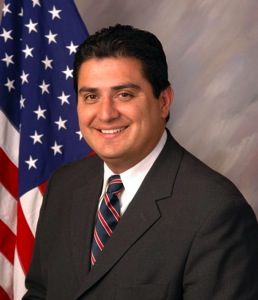
Worth watching in all of these races is voter turnout. November 2012 saw better than expected numbers, but it’s difficult to know how much was due to online voter registration and improved local party machinery versus specific candidates and initiatives. Special elections typically have abysmal turnouts; improved numbers would suggest more durable changes in the electorate that could help progressives in 2014.
Beyond the 2013 elections, candidates will also be positioning themselves for 2014 races. Among the biggest will be Gov. Jerry Brown’s decision about a second term. Having come through 2012 with supermajorities in both legislative houses and a voter approved tax hike, the Democratic nomination is likely Brown’s if he wants it.
If he doesn’t, Lt. Gov. Gavin Newsom, Los Angeles Mayor Antonio Villaraigosa and Attorney General Kamala Harris are all in the mix. An Obama appointment might take Harris out of the running, but the announcement that U.S. Attorney General Eric Holder is staying on makes that less likely. Unless the Democrats are seen as abusing their unbridled power, a general election without a Republican wouldn’t be out of the question.
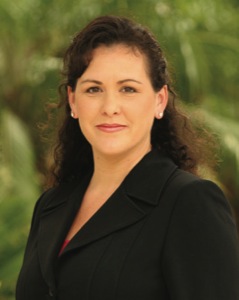
At the local level, the “guess when Rep. Susan Davis will retire” game is starting again. While the 53rd District should be safely blue under any circumstance, party leaders historically pressure incumbents to stay through midterm elections like 2014. Davis running again would not only make her seat an easy hold, but would allow local Democrats to focus on re-electing Rep. Scott Peters. Given the partisan parity of the 52nd District, expect Republican challengers to start jockeying for position in 2013. A top tier candidate, perhaps Councilmember Kevin Faulconer, could give Peters a real race if 2014 is anything like 2010.
Should Davis step down, the assumption has long been that she would be succeeded by her political protégé, City Council President Todd Gloria. While the seat would likely be his for the taking, some who heard his inauguration day speech last month are less certain he’d take it. Gloria’s remarks, including a possible infrastructure funding initiative, sounded more like a future mayor than congressmember.
That could reflect attention to his new duties as Council president, or very reasonable calculation that being mayor of California’s second largest city is a better launching pad for state-wide office than being one of its 53 congressmembers.
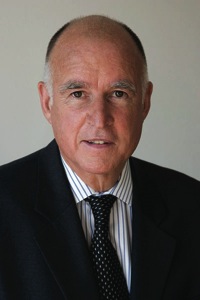
For the moment, I have no reason to think that Councilmember David Alvarez and whoever wins the District 4 special election won’t run again in 2014. Less clear is whether Councilmember Zapf will run for re-election in District 6 or for the seat opening up due to Councilmember Faulconer’s term limited departure in District 2, where she now lives thanks to redistricting.
Should Zapf decide on District 2, expect one or more members of the Asian Pacific Islander community to run for the District 6 seat.
Those wanting a quick assessment of President Obama’s fifth year in office can look toward the gubernatorial races in New Jersey and Virginia, where Democratic losses in 2009 heralded the 2010 Republican wave.
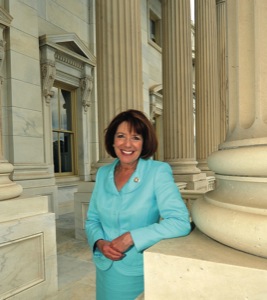
In New Jersey, Republican Gov. Chris Christie’s popularity surge in the wake of Hurricane Sandy convinced the Democrats’ buzziest candidate, Newark Mayor Cory Booker, to skip the race. (Instead, he announced plans to run against sitting Democratic senator, Frank Lautenberg, which raised a few eyebrows.) Once Sandy fades, though, Christie will be faced with having to moderate his rhetoric and policies enough to get re-elected in blue New Jersey without ruining his chances in a Republican presidential primary. A Christie victory isn’t the end of the world for Democrats, but a Christie loss would point to Democratic gains in 2014.
Virginia is an even better political weather vane, as its one term limit keeps the incumbent advantage from confusing the direction. It also appears that the contrast will be stark, with fiscal and social conservative state Attorney General Ken Cuccinelli facing former Democratic National Committee Chair Terry McAuliffe. Unfortunately for Cuccinelli, Lt. Gov. Bill Bolling is a bit miffed that Cuccinelli jumped him in line, and is considering a run as an independent. That likely hands the race to McAuliffe in a way that says much less about the national mood than a one-on-one victory.
Because the Biden/McConnell tax deal wasn’t signed until 2013, we technically went over the fiscal cliff, but found a ledge fast enough to keep the financial markets happy. Unfortunately, that ledge only lasts for 6-8 weeks, after which we face equally painful discussions about the budget, the “sequester” spending cuts and the debt ceiling.

Assuming President Obama keeps to his pledge not to negotiate over the debt ceiling, we could be in for a lengthy constitutional battle, or perhaps a trillion dollar coin. Republican obstruction will lead to 2014 elections where Democrats run on the need for a Congress that will implement the policies for which people re-elected President Obama.
When and if the budget issues ever finish, expect immigration reform to take center stage.
One of the very intended but less touted consequences of the Deferred Action for Childhood Arrivals was to allow them to more safely advocate for themselves and their families. As the LGBT community has learned, civil rights battles move faster when the discriminatees can put their faces on the movement. The voices of Dreamers will help President Obama get Republicans on board.
Expect more Republicans to also get on board with marriage equality in 2013, as evidenced by the chairman of the Illinois Republican Party, who supported legislation in the Land of Lincoln. In addition to Illinois, look to Minnesota, New Jersey and Hawaii as states that may endorse marriage equality by legislative action.
Those are the clear pictures from the crystal ball, at least compared to seeing what the Supreme Court will do. That analysis was in a previous column (LGBTweekly.com – The Supreme Court has spoken; now what did they say? Dec. 12, 2012), so we’ll stick to the predictions. DOMA part III goes down, everywhere. Prop. 8 goes down in a way that brings marriage equality to California, but leaves other states alone – until the Nevada case works its way through the courts.
Happy 2013!











